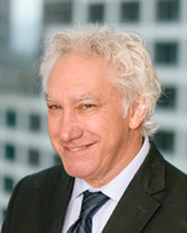Small Molecules And The Arc Of Time

By Louis Garguilo, Chief Editor, Outsourced Pharma

“I've been trained, and doing the same stuff since I was 25; the same every day. The same experiments for 50 some years, a long time now. I guess you could call what I am describing as the arc of time for small molecules,” says Kintara Therapeutics cofounder and CSO Dennis Brown.
And describe that arc he does.
Brown’s soliloquy arrives in the middle of a conversation with him and President and CEO of Kintara, Robert E. Hoffman. The first part of our discussion –focused on outsourcing (anticancer small molecules) to China, is here.

Although Brown downplays his role in his comments above, he's founded and led a number of cutting-edge and successful companies, and his career is an instructive retelling for Outsourced Pharma readers.
Here he is in his own words, with editing for clarity and brevity.
The NCI Nexus
“I was trained in New York in cancer biology by a pioneer in the field, Dr. Anna Goldfeder. From there I was recruited to Stanford University – this is old school stuff now – when the National Cancer Institute (NCI) was the only game in town if you were looking for new molecules to treat cancer patients.
It wasn't a big industry. If there was an interesting molecule, Bristol Myers would cherry pick it [examples are taxol and cisplatin], but otherwise, our taxpayer money was responsible for finding drugs.
Actually, 2021 was the 50th anniversary of President Nixon’s National Cancer Act, the first “Cancer Moonshot,” and this was all an NCI effort. I got to go to Stanford and be in the middle of it, between the chemistry of discovery and the biology assessment. The biologists thought I was a chemist, the chemists thought I was a biologist. Nobody knew the difference!
At that time, there was a well-regarded program by the NCI – the first where they outsourced to external chemistry groups to make and test compounds, to organizations like Southern Research.
The speed of molecule discovery activities was accelerating. We had a great outcome, and identified four or five molecules in three or four years. A very elegant program.
But with that, I was made aware of ‘decision networks,’ what was and what wasn't good, and the efficiency of programs. In some cases a very good molecule did not proceed with further development, and that was frustrating. I was always interested in seeing which molecules moved forward toward clinical trials and which ones did not.
And I experienced many service providers as a part of the vendor systems that the NCI used when they found a lead. This was my introduction to outsourcing. I got a sense of what was important. The NCI needed and used reliable vendors in scale-up chemistry, formulation design, and pilot manufacturing to efficiently evaluate novel therapeutics. There were so many people that I could talk to.
But when AIDS came in, all those programs were dropped.”
New Connections
“They pushed out chemists working on anti-cancer effects, and put some into the antiviral area. They even pushed early retirement for scientists. A lot of programs that were promising, just stopped.
I knew there were some pearls left around that needed polishing. That's where I have sort of been working all these years, mining these databases and small-molecule compounds, along with some very smart people.
We also started traveling, often to China, in the late 1990s, facilitated by introductions from Peter Werth, the founder of ChemWerth. He led me to institutes, fine-chemical intermediates companies, the beginning of WuXi, frankly, to see if there were any assets that should come to the United States.
The NCI had gone around the world looking for molecules. They extracted compounds from plants; they found the taxols, camptothecin and other molecules, and went to fine chemical intermediate companies to just get things off the shelf to screen.
I was part of that screening. There were molecules from the Nestle company, from chocolate that they thought might be useful. I looked at one of those.
Our current compound here at Kintara actually came out of Eastern Europe [VAL-083 described here], a chemical-intermediate company in Budapest, that was able to derivatize sugars with reactive groups, halogenated ones.
Those we have now at Kintara include epoxide enzymes. I first looked at those molecules and thought, ‘You gotta be kidding me. That can't be that hard.’ But it was.
So these molecules came through the NCI screening program. They were some of the most reactive compounds in all the NCI’s decision network, and they went into the clinic under NCI auspices. They were active in brain tumors and ovarian cancer.
But the problem was that there was no intellectual property space – the composition-of-matter claim was gone. To entice a larger company to put its arms around this is difficult. And this pre-existed the Orphan Drug Act.
Therefore, part of our code technology at Kintara was to exploit those regulatory opportunities when they arrived. We talked to KOLs [key opinion leaders] who had become part of our company and gave us tremendous guidance on what to do next – and where to put it to work.
So going back to our discussion on how we began outsourcing to China, for me in those early days, I used that intermediate broker, ChemWerth.
Peter Werth really pioneered developing the quality aspects in China for API, particularly for the generics industry. I think he's a national treasure to some companies in China for what he helped to do to bring APIs to the world.
He helped identify my vendor and did the QA. He had the people on the ground for all the site qualifications. And his involvement as a broker gave FDA confidence, because he was well known. That allowed us to start our work, and here we are in phase three and our other compound in the clinic.”
And many decades later, here's Dennis Brown, doing the same stuff, advancing small molecules, and selecting and managing outsourcing partnerships. His history, I think you'll agree, is our history.
----------------
Part one of our discussion with Kintara Therapeutics is here.
